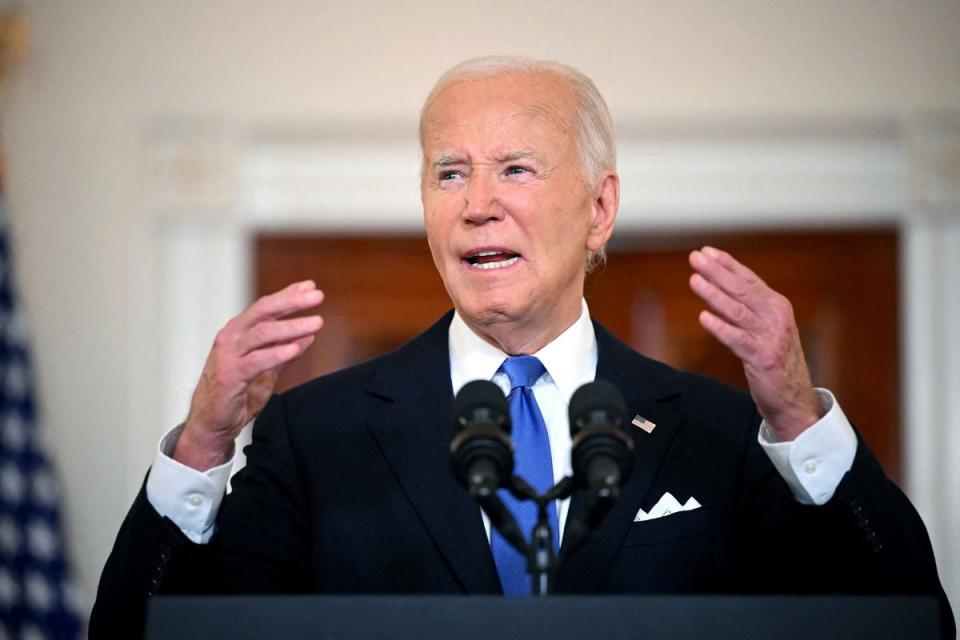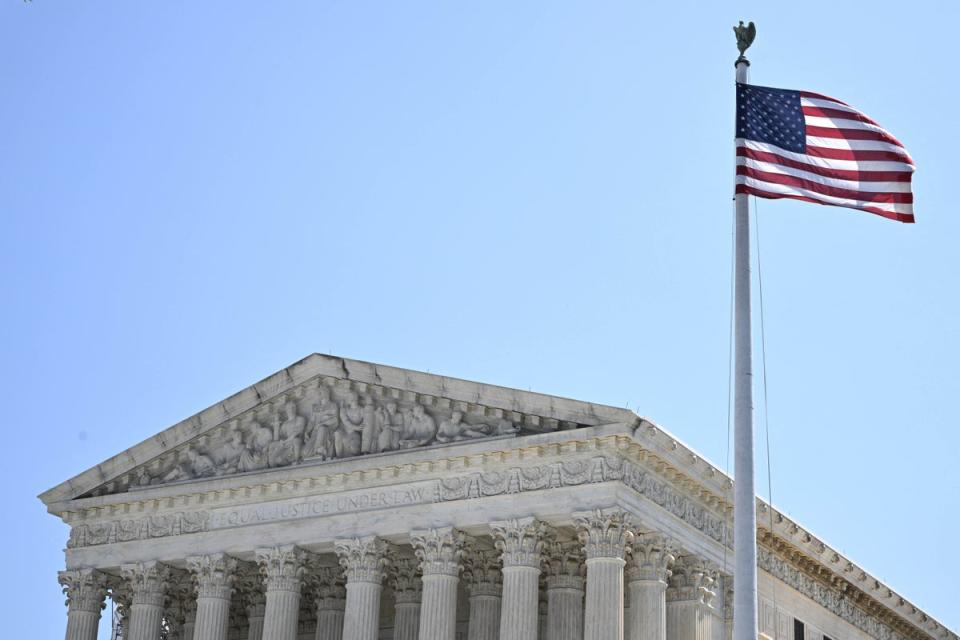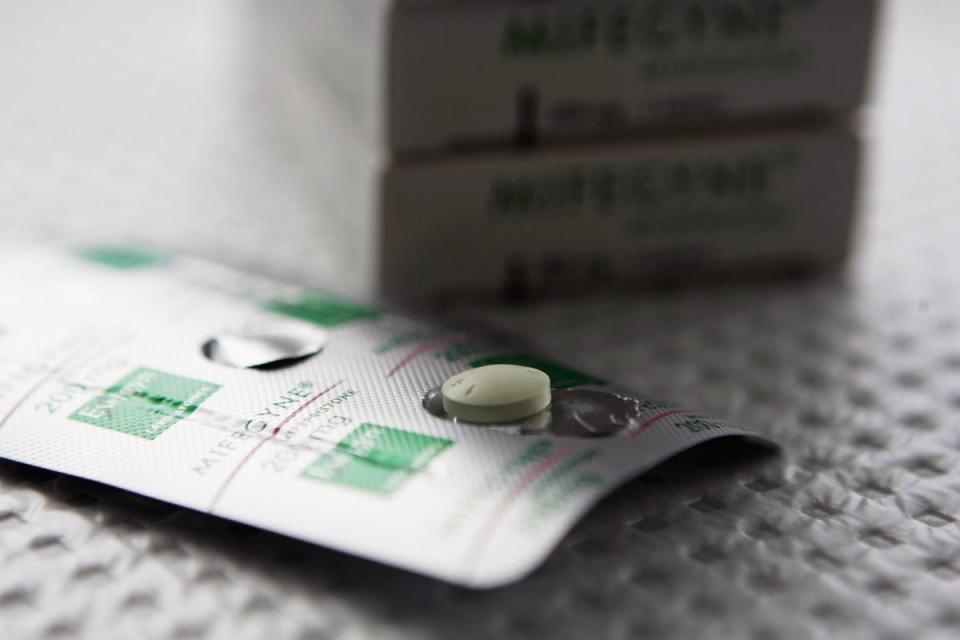What is the US Supreme Court and how does it work? Joe Biden says Trump immunity is 'dangerous' for America

US President Joe Biden has criticised the US Supreme Court's decision to grant his predecessor, Donald Trump, broad immunity from criminal charges of trying to overturn the 2020 presidential election.
Speaking at the White House, Mr Biden said Monday’s court decision meant Mr Trump was highly unlikely to go on trial before the November 5 election.
The Supreme Court found Mr Trump cannot be prosecuted for any actions that were within his constitutional powers as president. However, the former president can be prosecuted for private acts in a landmark ruling recognising for the first time any form of presidential immunity from prosecution.
"This nation was founded on the principle that there are no kings in America. Each of us is equal before the law. No one, no one is above the law. Not even the president of the United States," Mr Biden said, reading from a teleprompter.

He said the court's decision meant there were now virtually no limits on what a president could do.
"It's a dangerous precedent because the power of the office will no longer be constrained by the law," Mr Biden said in a televised address. "The only limits will be self-imposed by the president alone."
The judgment will further delay the criminal case against Mr Trump for allegedly trying to subvert the 2020 election result that gave victory to Mr Biden.
The BBC reported that a trial judge must now determine which actions were carried out in Mr Trump's capacity as president. This could take months.
Any trial is unlikely to start before November's presidential election.
But what is the US Supreme Court, how does it operate, and who serves on it?
Here’s what you need to know.
What is the US Supreme Court?
The US Supreme Court is the highest in the United States federal judiciary. It is located on Capitol Hill in Washington, D.C.
It first came into existence with the ratification of the United States Constitution in 1789. The Judiciary Act of 1789, passed by the First Congress, established the structure and jurisdiction of the Supreme Court.
The court began its operations in February 1790.
Composition:
The court comprises nine justices, including one Chief Justice and eight Associate Justices. Justices are nominated by the President and confirmed by the Senate.
Jurisdiction:
The Supreme Court has both appellate and original jurisdiction. Its appellate jurisdiction includes reviewing decisions of lower federal courts and state supreme courts. Its original jurisdiction covers cases involving ambassadors, public ministers, consuls, and those in which a state is a party.

Role and functions:
The Court’s primary function is to interpret the Constitution and federal laws. It serves as the final arbiter of legal disputes and can strike down laws or executive actions deemed unconstitutional, a process known as judicial review.
The Court’s decisions are binding on all lower courts. It issues written opinions that explain the legal reasoning behind its decisions, often setting precedents that guide future cases.
Sessions and case selection:
The court’s annual term begins on the first Monday in October and lasts until late June or early July. It hears a small percentage of the cases it is asked to review, granting certiorari to cases that present significant legal questions or issues of national importance.
Historical impact:
The Supreme Court has played a crucial role in shaping US law and society through landmark decisions on issues including civil rights, federal powers, and individual liberties.
Who serves on the US Supreme Court?
The court’s nine justices as of July 2024 are:
How does the US Supreme Court work?
Cases typically reach the court through certiorari, a process where at least four of the nine justices must agree to hear the case. This ensures that the court only addresses significant legal issues or conflicts that require resolution.
Once a case is accepted, the court conducts a thorough review, which includes examining written briefs, holding oral arguments, and deliberating privately among the justices. After these deliberations, the justices vote on the outcome.
The court then issues a written opinion, explaining the legal reasoning behind its decision. These opinions set precedents that guide future legal interpretations and ensure uniform application of the law across the United States.
How has the US Supreme Court made headlines this year?
The Supreme Court granted Mr Trump's request, ensuring that his criminal trial for attempting to rig the 2020 presidential election will not take place before the November 2024 election.
Additionally, it declared that presidents should be deemed immune for a far wider range of conduct and gave them a defined "absolute immunity" from prosecution for key governmental acts.
Mr Trump hailed the court's decision as a "big win" for democracy.
Legal experts warn this decision could significantly alter the power of the presidency. Critics argue it places the president above the law, while supporters believe it protects them from politically motivated charges.

Another big case in the court in 2024 came in June. In a unanimous 9-0 decision, it upheld the availability of mifepristone, a key medication used in abortions, delivering a significant win for supporters of abortion rights.
The case, FDA v Alliance for Hippocratic Medicine, centred on the Food and Drug Administration (FDA's) authority to regulate mifepristone. This plays a crucial role in over 60 per cent of US abortions and has been a focal point for anti-abortion activists.
Despite efforts by opponents to restrict access, including challenging FDA measures allowing abortion providers to post the drug to patients, the court's ruling ensures continued access to this critical abortion pill.


